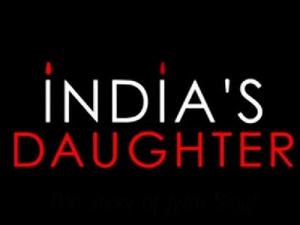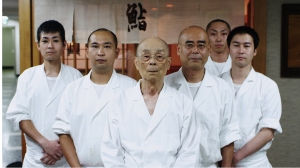Please check out the Harry Potter articles and other fandom related posts at our new home Fandom Folk.
5 lessons I learnt from the best sushi chef in the world
I’m a few years late to this party but I only recently watched the 2011 documentary Jiro Dreams of Sushi. The documentary focuses on a then 85 year old Jiro Ono and the staff of his small, unassuming restaurant Sukiyabashi Jiro, located in a basement near a subway in Japan. Jiro Ono became the first sushi chef in the world to be awarded 3 Michelin stars. He is regarded as a national treasure by the Japanese government and for good reason. Chef Jiro evolves sushi to an artform and while I don’t aspire to be a sushi chef, watching Chef Jiro has taught me the following invaluable lessons about work ethic and commitment.
- Love what you do. “Once you decide on your occupation… you must fall in love with your work.” I watched this documentary to see skillfully made sushi but I instead marveled at the profound wisdom of Chef Jiro. This is an 85 year old man who works every. single. day. except for public holidays and to attend funerals. Such dedication and commitment can only spring from genuine love for what he does. Chef Jiro also says that you should not spend time looking for the job you love. Instead, learn to love the job you have. This is an important lesson for those who are not able to just drop everything and look for their dream job. There is something important in the job that each of us does. Find that aspect of your job and celebrate it.
- Always leave room to grow. At the time of the documentary, Chef Jiro had been a sushi chef for 76 years and yet he is still in pursuit of perfection. The constant striving for self improvement does not mean being hard on yourself or disregarding your worth. Know who you are and celebrate what you are good at but also know where you can improve. Chef Jiro does not set upper limits on himself. He says, “The is always a yearning to achieve more. I will continue to climb, trying to reach the top – but no one knows where the top is.”
- Discipline is the key to achieving your best. “I do the same thing over and over. Improving bit by bit. ” Chef Jiro lives each day following a strict schedule. He even waits for the train in the same spot every morning! While not everyone has the ability to perform at their best in a rigid schedule, we can all adapt his core values to suit each of our lifestyles. Chef Jiro believes that the subtle nuances of a craft can be discovered through repetition and consistency. When you spend years doing the same thing, you learn to appreciate every detail and you become more aware of the requirements for a perfect execution each time. Your skill will improve gradually, incrementally, and reliably.
- The time you dedicate to your craft earns you the right to be considered good. Chef Jiro’s apprentices must train under him for at least ten years before they can be considered master sushi chefs. Each apprentice must start working at the bottom rung of the ladder and prove that they are capable of the more menial tasks before they are entrusted with actual sushi making. They are only promoted to a more difficult task once the apprentice above them has moved on. The emphasis on ‘earning your stripes’ brings authenticity to your work and allows you to explore every facet of your craft. Chef Jiro says, “You must dedicate your life to mastering your skill.That’s the secret to success and is the key to being regarded honorably.”
- Always accept criticism graciously. The documentary shows Chef Jiro critiquing the work of his apprentices as part of their training. They make trial sushi and Chef Jiro gives his remarks and suggestions to them, telling them where they can improve. Their responses are always a firm and respectful “Yes.” There is no ego or attitude, just an assurance that they understand and that they will do better next time. In order to be the best, you must accept lessons from the best and this can be relevant to any craft. While you may not agree with every criticism you receive, at least take a moment to consider this point of view. It may add an otherwise disregarded dimension to your work.
What really resonated with me is the similarities of these lessons with those I learnt as a dance student. Every value was a universal rule for success and while Chef Jiro applies this philosophy to sushi, I believe that every person in any profession can learn from his example. Watch the trailer for Jiro Dreams of Sushi below.
To check out my dance blog, go to bharathanatyam.wordpress.com and please leave your comments and suggestions below 🙂
-Sharm
India’s Daughter… Why doesn’t India want this documentary to be seen?
 I was fortunate enough to watch the documentary India’s Daughter the day before the video was pulled from Youtube. The documentary reports on the case of Jyoti Singh’s (Nirbhaya’s) brutal gang rape on a moving bus in Dehli in 2012. I am deeply disappointed by India’s ban on this documentary. I feel that every adult should watch it and see exactly what the women of India face. There have been a lot of shocked comments on how callous and offensive the accused and the defence lawyers are and the motivation behind the ban was that not every viewer would see these heinous opinions as wrong. The fear was that hearing the rationale behind the criminal’s actions would encourage other criminals.
I was fortunate enough to watch the documentary India’s Daughter the day before the video was pulled from Youtube. The documentary reports on the case of Jyoti Singh’s (Nirbhaya’s) brutal gang rape on a moving bus in Dehli in 2012. I am deeply disappointed by India’s ban on this documentary. I feel that every adult should watch it and see exactly what the women of India face. There have been a lot of shocked comments on how callous and offensive the accused and the defence lawyers are and the motivation behind the ban was that not every viewer would see these heinous opinions as wrong. The fear was that hearing the rationale behind the criminal’s actions would encourage other criminals.
I see this documentary as the perfect tool to educate the public. The documentary does not in any way glorify the rapist. He is allowed to air his views for the sole purpose of educating us on the root of the problem. He is shown as an average person, who has responsibilities and parents who love him because we need to know that it is the average person who has such a terrible attitude towards women. Even more educational (and disgusting) are the statements made by the defence lawyers. These are educated men who have good jobs and do not live in the impoverished situation that the rapists are in but their opinions are twisted and inhumane. I expected to be shocked by the criminals but it’s the lawyers that actually leave me dumbfounded. It shows us that the oppression of women is not a problem limited to the slums; it is a pandemic that is experienced in all classes and across all lifestyles. India’s Daughter is a wake up call!
The news footage of the riots that took place after Nirbhaya’s story broke proves that India is ready for change. I felt truly inspired watching those brave and mostly young Indians demand freedom and equality in their society. I felt proud of the young men taking a stand for women’s rights. I felt admiration for Jyoti’s parents who prove that it is possible to be progressive in thinking and yet still be traditional, respectable Indians. I felt that despite the bleak truth of this documentary, there is still hope for a better society.
Having read many articles about India’s Daughter and sifting through a wide range of comments, I was relieved to find that most people are supportive of the film maker and the message that is being relayed. There remains, however, a strong opposition to the broadcasting of this documentary. Some are concerned that the documentary paints rape as an exclusively Indian problem. (Having watched the documentary, I can assert that this is not true.) There are some who have a problem with the documentary being a British (BBC) production. There are even some who are upset that the documentary makes India look bad and to these people, I say:
It does not matter who is telling you that you have a problem. It could be your best friend or your worst enemy. The point is that you have a problem. You could be the only one with the problem or there could be others with the problem but the point is that you still have a problem. Whether or not you want to hear that you have a problem, you still have a problem. Whether you alone know about it or the whole world knows about it, you still have a problem. Face up to it.
I think that any attempt to make such superficial issues more prevalent than the problem of gender inequality showcased in the documentary is disrespectful to Nirbhaya and the millions of girls and women who have been raped and abused. This is not a platform to point fingers at others. Own up to your mistakes, India, and let your social revolution be an example for the rest of the world to follow. In the foundation of Hinduism lies Ahimsa (non-violence) and Shanthi (peace). If ours was a perfect culture, as claimed by one of the defence lawyers, we would live by these principles. Pick up the pieces and work towards a better future for your country and our world.
Afterthought: I am definitely uncomfortable with agreeing with a criminal but his comment on the death penalty did make me stop to think. He says that enforcing the death penalty will push rapists to kill their victims so that they cannot identify their attackers and press charges. I (reluctantly) agree with his statement. The death penalty will force extremism. I think that the solution lies in preventing the mindset that leads to rape. Allowing people to continue believing in gender bias but killing them when they act on it is not going to solve the problem. I call for the harshest of punishments short of death. I would also like to direct readers to a moving petition written by Moumita Pal in response to India’s Daughter, particularly to the horrible opinions expressed by the defence lawyers. Click the link below to read her open letter and sign the petition.
-Sharm

